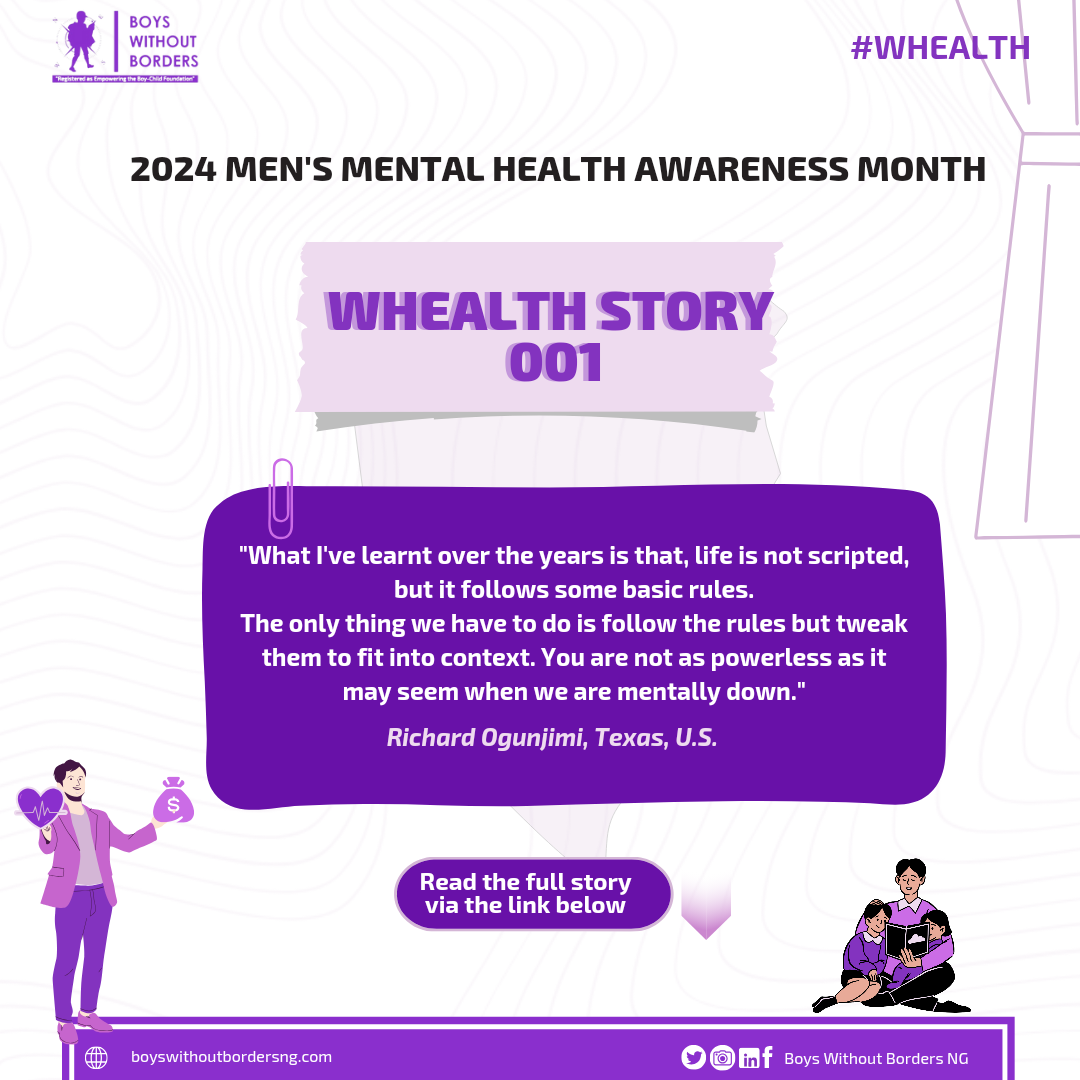
Whealth Story #01 features Richard Ogunjimi, a 35-year-old man living in Texas, United States. He shares his experience with the hunt for financial stability, how it affected him, and what helped him bounce back.
What is your earliest memory of the pressure to make money and fend for yourself or others as a boy/man?
When I was around 13.
When did your pursuit of wealth start?
Officially, that would be when I was 13.
What is your Whealth story? What instance(s) did it feel like you were not in a good state of mind (due to financial pressure or issues) while you were chasing the bag? How did it affect you? What did you turn to to make it better?
After graduating from school, I was applying for and writing internship exams in tertiary hospitals. I spent 6months just doing nothing and broke as hell. Those six months (short as they may seem) almost made me lose my mind. I had classmates who are almost rounding up their internships and there’s me, broke and disconnected from the world. What made it worse was that, I couldn’t go home, cos the Nigeria mentality; you are a graduate, you should be able to fend for yourself. I was severely depressed.
I was determined to keep grinding without calling home; home is broke too by the way, so I knew, this is going to be a tough lonely battle. What worsen my situation was getting rejections at hospitals I was passionate to work.
In fact, I was willing to work for reduced or even free as long as they will cover my basic needs such as transport, feeding and shelter. That’s how bad my state was. I was willing to slave myself out because I was desperately in need.
One thing mental health breakdown causes is low self-respect, and low self-respect keep making your mental health deteriorate further. What did I turn to to make it better? I took to reading non-medical books and did some volunteering.
Some of the benefits of volunteering is, it builds your self-respect as you are contributing positively to the society. The neuroscience of this is readily available online if you are interested in reading up on it.
What was the turning point for you? How do you think it could work for others?
First, I owe most of the turning point to people in my circle. My turning point was when I got an invite to for the internship exams in the National Hospital Abuja, through a friend and senior colleague who was then rounding up his own internship there.
Not only did I pass the exam, I also came out on the merit list. That single event, set the trajectory for me and till date, I still trace that point to the birth of my economic climb. First, when you are down, try to look through your circles and reach out for help. Reaching out is the last thing depression will want you to do, but you must do it to break the circle.
Second, don’t make life-altering decisions while in that dark tunnel, you don’t have all the information and tools you need to make rational decisions, try to run your decisions through people you trust and listen to their reservations, don’t take their reservations as an attack.
Finally, please volunteer! Volunteering helps you make connections and help your self-esteem, death comes to us all, but it comes quicker to a man living on an island by himself.
Any other detail you’d love to share?
What I’ve learnt over the years is that, life is not scripted, but it follows some basic rules. The only thing we have to do is follow the rules but tweak them to fit into context. You are not as powerless as it may seem when we are mentally down.
Have a similar story you think people can benefit from? Share your Whealth story via this form.




